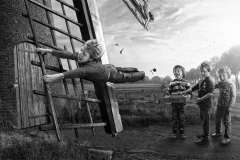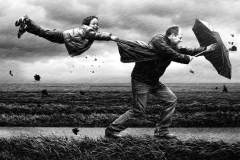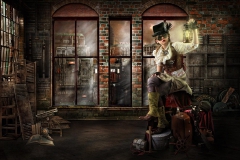Have you been bitten by the photography bug, but not sure where you should begin to start taking great pictures? Not sure which shots are right or what type of lighting to use? Whether you are a newcomer to photography or you have a little know-how already, some more advice is sure to come in handy, and that is just what you can pick up by reading the rest of this article.
Shutter Speed
It takes experimentation to learn which shutter speed works best in different settings. You can either capture a precise moment or use a higher exposure to blur together a period of time. For example, a fast shutter speed allows you to catch fast moving objects clearly.
The foreground is much more noticeable than the background in a photograph. Add some interesting elements or colors to your foreground to create a better frame for your landscape.
Always be careful when packing your equipment for a trip. Be sure to take all of the lenses that you will need, as well as spare batteries, a tripod, extra memory cards, and any cleaning accessories. Try to pack as lightly as possible, without forgetting any of the essentials, so that your bag remains easy to manage during travel.
If you keep your batteries charged at all times, you will not miss the picture of a lifetime. Digital cameras can suck up a lot of battery power, the LCD screen has a lot to do with this, make sure you have your batteries fully charged. If you’re really dedicated to always being ready to shoot, bring along an extra set of camera batteries.
While you are traveling, photograph memorable souvenirs that you have purchased on-the-go. Take a picture either of the store or the souvenir together with the original. This is a great way to capture memories and remember where you might have purchased a certain item from.
Be prepared to take notes when you practice photography. Sifting through hundreds of photographs, you may have a difficult time remembering the emotions and thoughts that you were experiencing when you snapped each picture. Use a notepad to jot down a few notes about the pictures you take.
You are allowed to move around the subject to find an interesting shot. Unique angles can add an artistic element to your pictures.
Pre-focus your camera and move the lens slightly in one direction so that the subject you are shooting is slightly off center. A centered subject is the norm and most people will not find it interesting or artistic. Try off-centering your shots to make your subject appear more interesting to the viewer.
There isn’t a secret to being an excellent photographer. Experience and persistence are both necessary. One of the great benefits of digital photography is that it is very easy to sort through images you want to keep, and discard the rest. Take photographs of anything and everything, and then review them later for ideas and insights on how you might have gotten a better image.
When dealing with any kind of landscape subject, you need to make sure that your photos have three very important things. The foreground is closest and sharpest in focus, the middle ground less so, and the background is remote, giving a sense of distance. Most art uses these three factors when producing any quality work. Photography is no different.
Nearly any subject can look more interesting if you adjust your camera settings, shoot from an alternate angle or use different lighting. Be sure to test out these ideas before you take your picture so that you have a better idea of how they will affect your shot.
Getting good at photography requires constant research and practice. With so much to learn about photography, it is easy to forget that there isn’t a right or wrong way to do things. Make these tips work to your benefit.








